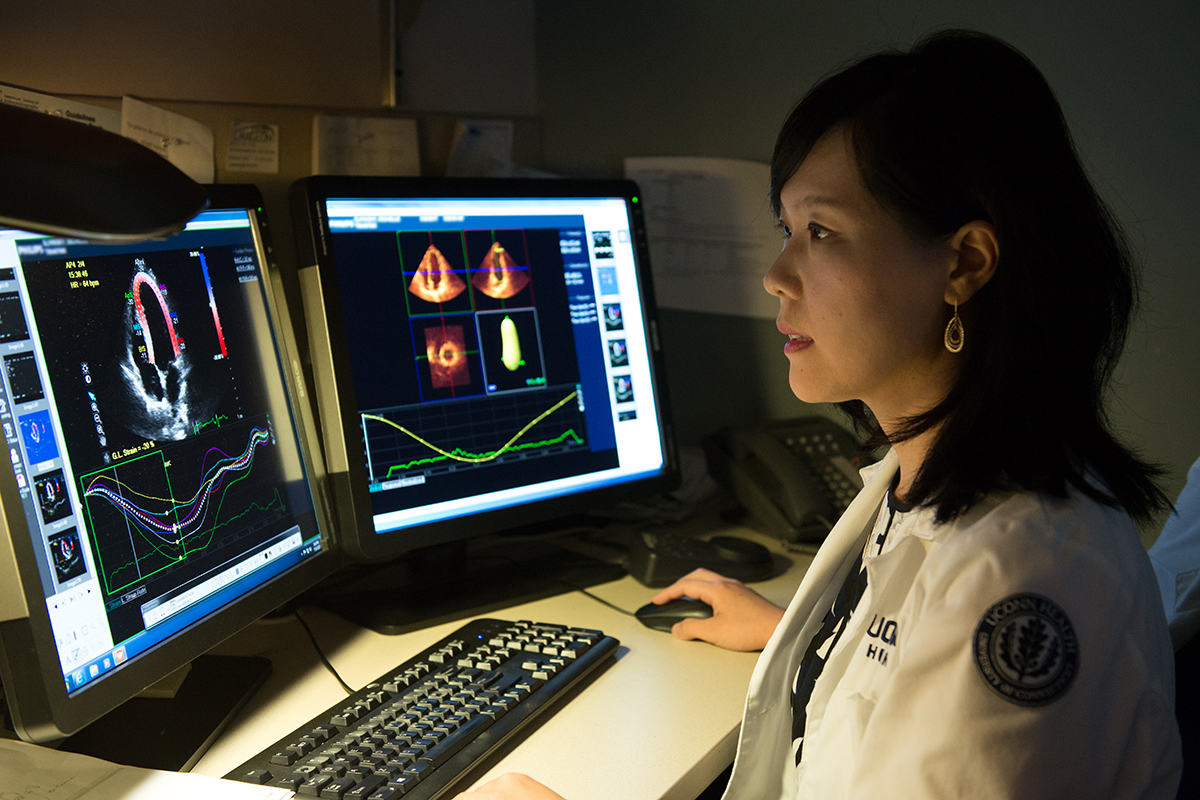
(Credit: UConn)
UConn Health has begun tracking cancer patients with an advanced heart imaging test before, during, and after chemotherapy and radiation therapy care, with the goal of detecting any potential cardiac health risks or conditions early.
There are currently more than 15 million cancer survivors in the U.S., and that number is expected to grow to 20 million within 10 years. But as more patients survive cancer, the potential risk of developing cardiovascular health issues from lifesaving chemotherapy and radiation treatments is also increasing.
New echocardiography strain imaging is now allowing cardiologists to hunt for any early warning signs of heart muscle function changes or damage within the heart tissue’s tiny speckles. The in-depth strain analysis is powered by traditional ultrasound technology, which uses high-frequency soundwaves to create a sonogram of the pumping heart.
On a subclinical level, before any symptoms even present, echo strain imaging allows a cardiologist to identify any potential impact of cancer treatment on the heart’s left ventricular function, the thickest heart chamber, that controls the pumping of oxygenated blood throughout the body. If the left ventricle does not function well, it can lead to heart failure.
Dr. Agnes Kim, director of the Cardio-Oncology Program at the Calhoun Cardiology Center at UConn Health, says it’s very important to monitor cancer care patients for any signs of cardiac toxicity. “Echo strain imaging has been compared to a canary in the coal mine,” she says. “We are so grateful that our cancer patients have access to this latest technology so that we can monitor and intervene early on if any warning signs are present.”
The risk of cancer care side effects showing up during treatment or years down the road is a big concern of cardio-oncology specialists like Kim. That’s why she launched the program in 2014.
Kim says it is key that UConn Health has an integrated program of oncologists and cardiologists, which allows for coordinated care to address the potential risks to heart health that can arise from cancer treatment.




